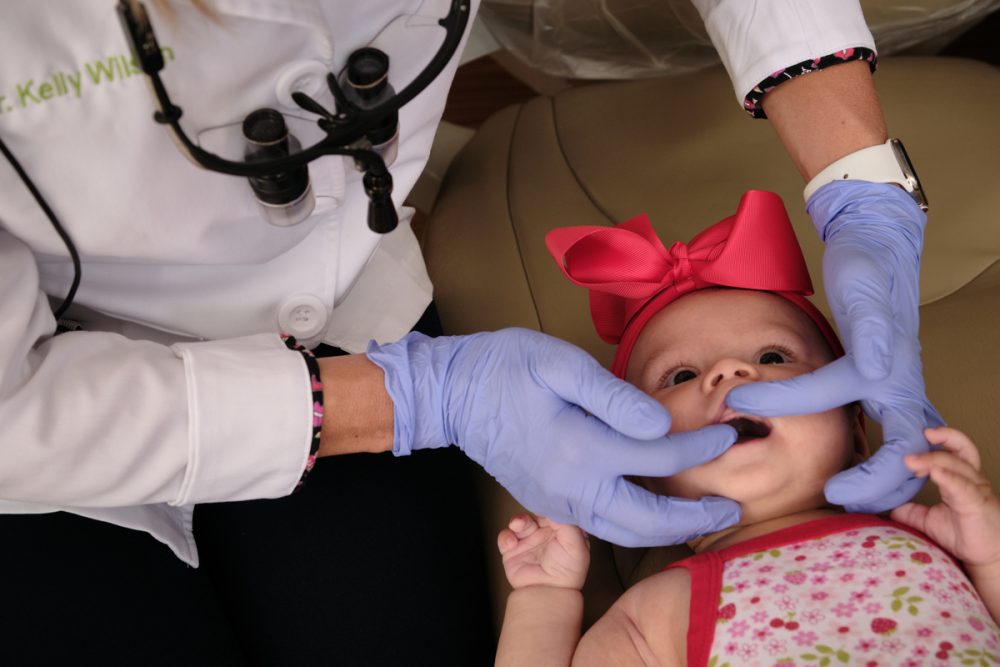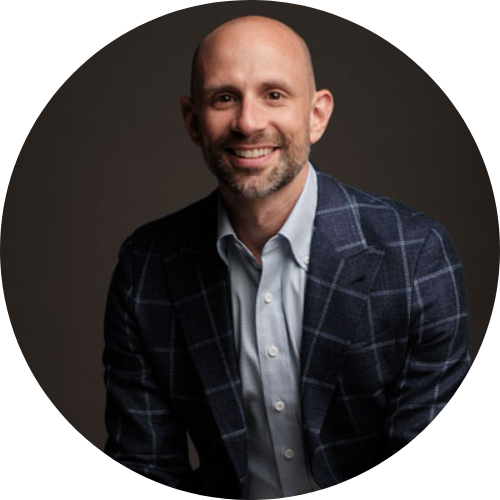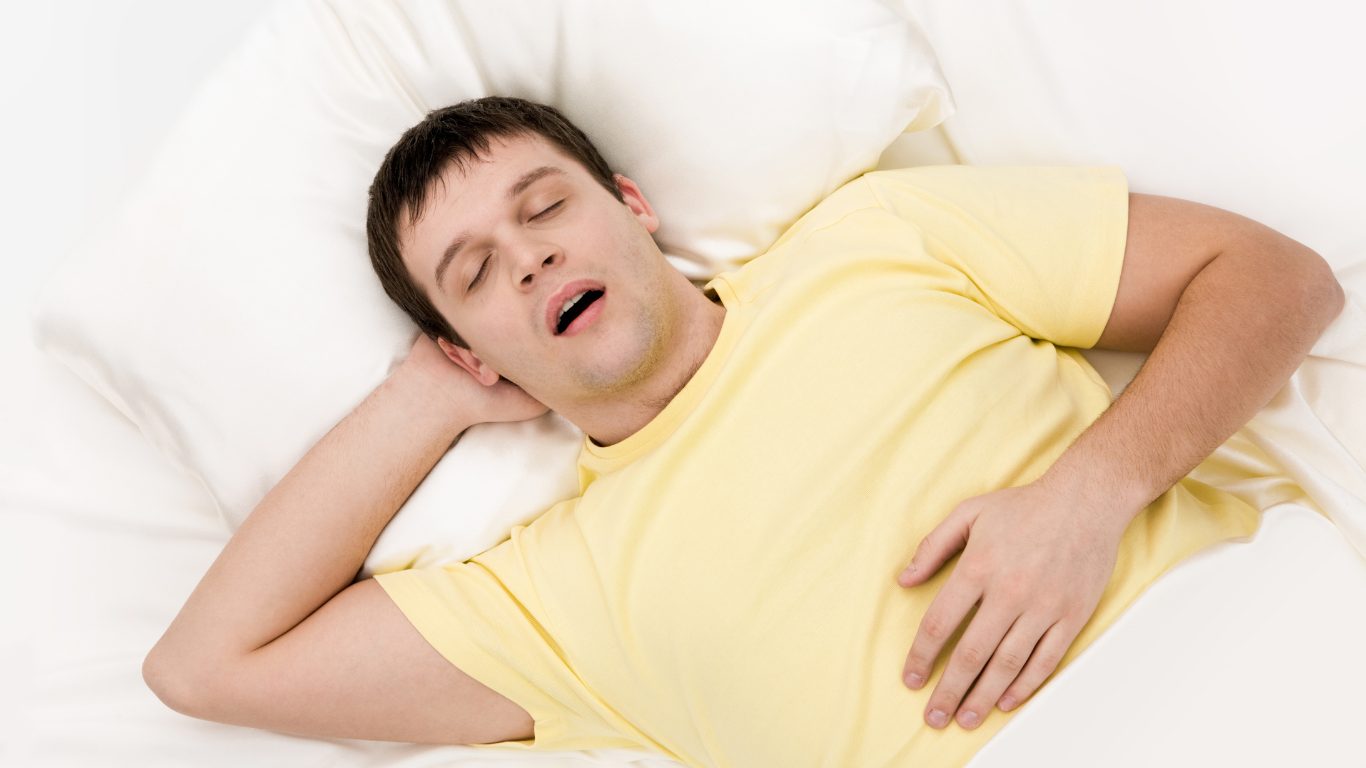
What Are The Benefits Of Myomunchee Therapy?
May 1, 2023
Signs of Tongue Tie
May 22, 2023Key Takeaways:
Health Risks:
Sleep apnea can increase the risk of high blood pressure, heart disease, and stroke.
Symptoms to Watch:
Persistent snoring, daytime fatigue, and interrupted sleep may indicate sleep apnea.
Dental Effects:
Sleep apnea can cause dry mouth and tooth decay due to mouth breathing, affecting oral health.
Since snoring is so common, people often underestimate the risks of snoring and sleep apnea. Johns Hopkins Medicine estimates that at least 25% of people snore regularly. As much as 40% snore occasionally.
So if you happen to snore, you are in good company. However, snoring is a symptom of sleep apnea which is a common but potentially serious health concern.
Before describing the risks, it may help first to understand what happens when someone snores. That “purring” sound happens after breathing through narrow or obstructed tissues in the neck. The tissues in the neck and nose vibrate, causing anything from a soft buzz to a disruptive cacophony. If you or someone you live with snores loudly, a good night’s rest can get in the way.
Please remember this article is purely for educational purposes and not a substitute for individual medical and dental care. Conditions like sleep apnea vary so much from individual to individual that personalized care is essential.
What’s the Difference Between Snoring and Sleep Apnea?
As mentioned, snoring is one symptom of sleep apnea, but occasionally snoring doesn’t mean that you have sleep apnea. There are a couple of main types of sleep apnea:
- Obstructive sleep apnea: Breathing is hindered by upper airway obstruction. Obstructive sleep apnea is the most common.
- Central sleep apnea: The breathing stops and starts while sleeping; this happens because the brain fails to send the right signals to the muscles you use to breathe.
The cause, symptoms, and treatments for different types of sleep apnea vary. Effective diagnosis and treatment require an exam and possibly even a sleep study. However, several common symptoms indicate sleep apnea, especially obstructive sleep apnea. These include:
- Have people commented on frequent or loud snoring?
- Do you wake up with a dry mouth?
- Do you suddenly stop breathing while asleep or even gasp for air?
- Do you have trouble falling asleep and staying asleep?
- Do you often have a headache in the morning?
- Do you often feel cranky or irritable?
- Do you feel tired and sleepy during the day?
- Do you find it hard to focus and concentrate during the day?
Risks of habitual snoring and obstructive sleep apnea
The unfortunate truth is that sleep apnea is more than just an inconvenience for your sleeping partner. As you may be able to guess from the symptoms, at the very least, sleep apnea means you won’t get the restorative rest your body desperately craves. Sleep deprivation leads to a range of general health issues.
You may also wonder why dentists care about your sleep. Often people wake with a dry mouth. A dry mouth is associated with many oral health problems, including an increased risk of cavities and gum disease.
The Mayo Clinic outlines some of the overall health risks associated with sleep apnea. These include:
- Tiredness and fatigue may seem obvious, but it dramatically impacts the quality of life. Driving, cycling, or operating equipment while overly tired also may increase the risk of car, sports, home, and workplace accidents.
- High blood pressure and heart disease, especially if you have obstructive sleep apnea. It may increase risk of increasing your risk of low blood oxygen, heart attack, stroke, and irregular heartbeats.
- Type 2 Diabetes and metabolic syndrome, while the exact connection isn’t clearly understood, these conditions are often correlated with sleep apnea.
- Liver problems like nonalcoholic fatty liver disease.
- Dental and oral health problems like dry mouth since breathing through the mouth can contribute to it.
Risk Factors for Sleep Apnea
The risk factors vary depending on whether it is obstructive sleep apnea or central sleep apnea. Since obstructive sleep apnea is the most common, let’s look at those risk factors first. They include:
- Age since sleep apnea is most common among middle-aged and older individuals.
- Family history and genetics play a role, as it does with many other health conditions.
- Being overweight or obese increases the likelihood of, and in some cases, weight loss can be a solution.
- Lifestyle factors like alcohol use and smoking also increase the risk of sleep apnea.
- Thyroid problems and other changes in hormone function.
- Variations in anatomy, including a thick neck or large tonsils, can contribute to obstructive sleep apnea.
- Kidney or heart issues that may cause fluid to build up in your neck also can lead to sleep apnea.
The risk factors for central sleep apnea include:
- Genetics and family history
- Age as the risk increases with age
- Opioid use can alter the signals the brain sends
- Other lifestyle factors like smoking, alcohol use
- Premature birth
- Changes in hormones
- Health concerns like stroke, heart failure, amyotrophic lateral sclerosis (ALS), and myasthenia gravis.
Lifestyle changes may be able to reduce some risk factors, but others can’t. However, with the help of allied health professionals like your doctor, a sleep specialist, and even your dentist, you may find relief from fatigue and mitigate some health risks.
Diagnosing and treating sleep apnea for better health
If you have sleep apnea symptoms, talk about it with your doctor and dentist. Any diagnosis starts with a discussion of your symptoms, medical history, and an examination. There is a range of treatment options depending on the type of sleep apnea and its severity. For example, someone who is slightly overweight with mild sleep apnea may find release with modest weight loss. Other people may need to sleep using a CPAP machine or even require jaw surgery.
These highly personal options vary by the individual and the severity of the sleep apnea. Some people benefit from Myomunchee therapy to strengthen and retrain specific muscles within the face, mouth, and neck for more optimal breathing. It may help promote nasal breathing, especially under the supervision of a skilled therapist.
If you live in the Charlotte, NC, area and may be suffering from sleep apnea, contact your doctor or Southview Dentistry. As dentists, we help reduce the oral health impact that is breathing through the mouth and sleep apnea present. In addition, we also specialize in therapies like Myomunchee which can help retrain the muscles for better breath control.




